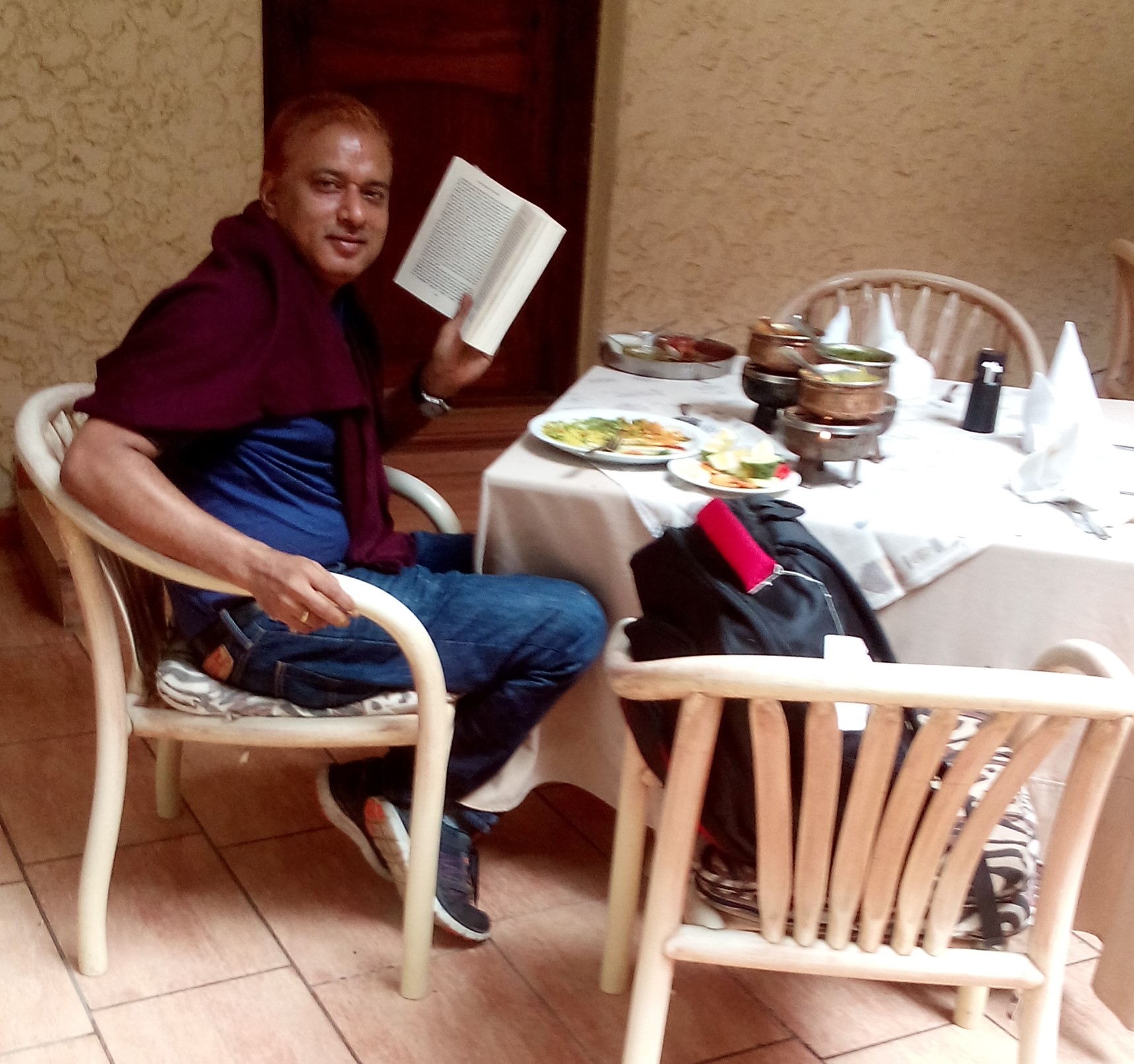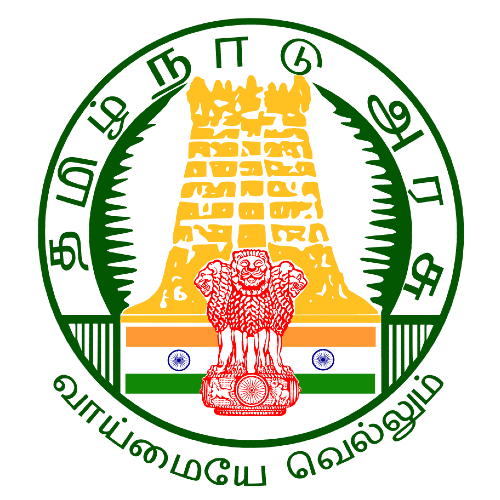Director,
Tel: +91-44-29872330,
Fax: +91-44-29872330,
Cell:+91-9445721157,
Email:shekhar.niraj@gmail.com,
skniraj2006@yahoo.com
shekhar.niraj@aiwc.res.in

Dr Shekhar Kumar Niraj is the first Director of AIWC in the rank of Additional Principal Chief Conservator of Forests and Director, Advanced Institute for Wildlife Conservation and the former Director and Country Head, TRAFFIC (Global Wildlife Trade Monitoring Network of the IUCN and WWF), Vandalur, Chennai, Tamil Nadu, 600048, India. His contact nos and email addresses are given below.
He has earned a Doctor of Philosophy degree from the University of Arizona, USA in Spring 2009 and produced a dissertation on Sustainable Development, Poaching, and Illegal Wildlife Trade in India. The dissertation included- Spatial and temporal analysis of poaching and illegal wildlife trade in India, stakeholder analysis of conservation polices, and evaluation of macroeconomic impact on global wildlife conservation. He also completed a Graduate Degree Certification in Geographic Information Science (GIS) in fall 2008 from University of Arizona. Earlier he has completed triple masters in Forestry, Chemistry and a Master of Philosophy degree in metallic corrosion from Delhi University. He has published many papers in international journal and several reports on wildlife trade and conservation.
In his previous assignment as the Additional PCCF, Project Tiger in Tamil Nadu cadre, he was responsible for overseeing the management of tiger reserves in Tamil Nadu besides conducting several projects for tiger management, protection and community based protection and ecotourism initiatives. In his current assignment as the Director, Advanced Institute for Wildlife Conservation, he is responsible for setting up this advanced institute under the Tamil Nadu government, to give it to a structure and shape to be able to conduct high level conservation research including DNA based forensic investigations at molecular level. He has held various assignments of forest management, wildlife management and policies development as an officer with the Indian Forest Service specialized in wildlife over25 years.
As the former current Country Head of TRAFFIC India, a programme division of WWF India and a global office of the Wildlife Trade Monitoring Network, he developed expertise in monitoring illegal wildlife trade, analysis of poaching and illegal wildlife trade trends, assisting governments in detecting and preventing wildlife crimes, capacity building of various law enforcing agencies, including Police, Border Security Forces, Customs, Army, and Forest and wildlife, Policy development, involvement in international policies on illegal wildlife trade and wildlife crimes, assisting governments in policy and legal support development works, leading campaigns against wildlife crimes. He has been trained more than 10000 officers of various enforcement and research institutions throughout his career.
key publication
Maheshwari, A. and S.K.Niraj. 2018.Monitoring illegal trade in snow leopards: 2003–2014. Journal of Global Ecology and Conservation 14. e00387. http://www.elsevier.com/locate/gecco
Niraj, S. K., B. Seshan, A.N. Choudhary, and S. Sethi. 2016. Understanding the Peafowl feather trade in India:2014-15. Traffic India, WWF India Secretariat, New Delhi, India.
Maheshwari, A. and S. K. Niraj. 2016.Conservation and adaptation in Asia’s high mountain landscapes and communities.Melting the snow: monitoring Illegal trade in Snow leopards. Traffic India, WWF India Secretariat, New Delhi, India.
Maheshwari, A., S. K. Niraj, S. Sathyakumar, M. Thakur and L. Sharma.2016. Snow leopard illegal trade in Afghanistan: a rapid survey. CAT news, 64, Autumn 2016.
Niraj, S. K. and A.N. Choudhary.2016. Information management has a significant impact on reducing wildlife crimes:2013-15. Traffic Post 25&26 (2016): 33-53.
Niraj, S. K., S. Attre, A. N. Choudhary, S. Ghosh. 2016. Wildlife Enforcement Training Manual. TRAFFIC India office/WWF-India, New Delhi, India.
Niraj, S. K., M. Kapoor, and T. Shankar. 2015. Red Sanders: An ecological boon or an enforcement bane? TRAFFIC, India Office/WWF-India. New Delhi, India.
Niraj, S. K., and M. Kapoor. 2015. Red sanders: an ecological boon or an enforcement bane? Journal of the Central Bureau of Investigations. December 2015. CBI Academy, Ghaziabad, India.
Niraj, S. K., and M. Kapoor. 2015. How standard certification in trade of medicinal and aromatic plants can lead to ecological and economic success in a transiting economy.Pages 39-42 in Souvenir of the National Workshop on Sustainable Development of Medicinal Plants Sector in North Eastern India”. Manipur Forest Department, Government of Manipur, 16 -17 February 2015, Imphal, Manipur, India.
Niraj, S. K., and S. Ghosh. 2014. Investigating Asia’s Biggest Animal Fair. Wildlife News UK. 19 March 2014.
Niraj, S. K., and S. Ghosh. 2014. Illegal Wildlife Trade Amidst the Biggest Animal Fair of Asia – The Sonepur Animal Mela in Bihar. Conservation India. 31 March 2014.
World Wide Fund for Nature (WWF)/TRAFFIC India. 2014. Illegal wildlife Trade Special Issue. PANDA. October 2014. WWF India, New Delhi, India.
Niraj, S.K., and S. Ghosh. 2013. Saving the top predators of the sea: highlighting shark conservation in India. Solitaire. Durrell Wildlife Conservation Trust, Jersey, Channel Islands, United Kingdom
Niraj, S. K, V. Dayal, and P. R. Krausman. 2010. Applying methodological pluralism to wildlife and the economy. Ecological Economics 69 (2010):1610–1616.
Ahmed, A., Niraj, S. and Rahmani, A. 2013. Wild Cry: Trade, trapping and utilization of the “Common” Hill Myna Graculareligiosa and “Lesser” Hill Myna Gracula (religiosa) indica in India. TRAFFIC Post. Issue 17, March, 2013: 14-15.
Niraj, S. K, P. R. Krausman, and V. Dayal. 2012.Temporal and spatial analysis of wildlife poaching in India from 1992-2006. International Journal of Ecological Economics and Statistics 24 (1).
Niraj, S. K, P. R. Krausman, and V. Dayal. 2012. A stakeholder perspective into wildlife policy development in India. The Journal of Wildlife Management 76(1):10–18.
Awards and Appreciations:
Recipient of the Royal Bank of Scotland Foundation Earth Heroes Award 2017, IUCN’s Asia’s one of 25 most influential environmental leaders 2015, and University of Arizona, USA, International Wildlife Foundation Award 2007.




